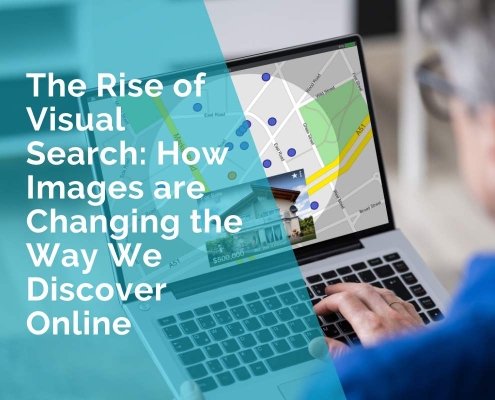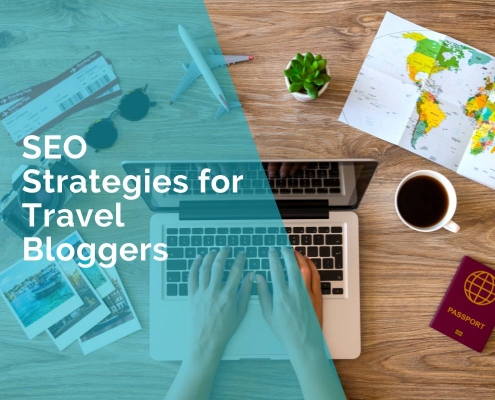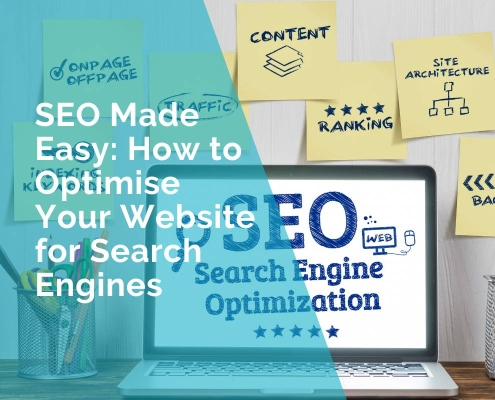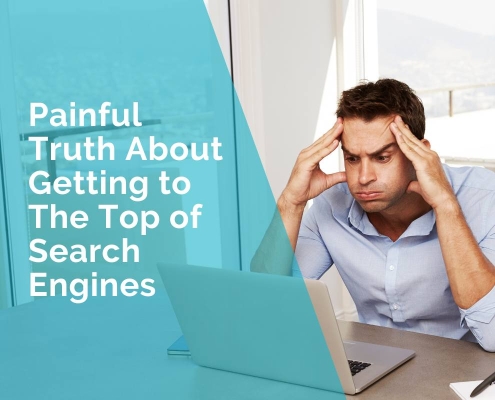5 Smart Ways Small Businesses Can Get Found on Google Without Paid Ads
Small businesses often struggle to gain visibility on Google without relying on paid ads. The challenge of competing against larger companies with bigger marketing budgets can seem daunting.
However, achieving organic visibility is not only more sustainable but also crucial for long-term customer acquisition and trust. Unlike paid advertising, which provides immediate but temporary visibility, effective SEO practices can lead to lasting results and continuous engagement.
SEO, or search engine optimization, is designed to enhance a website’s visibility on search engines like Google, making it easier for users to discover content. Effective SEO practices help search engines understand a website’s content, ultimately leading to improved rankings in search results.
The main goal of SEO is to attract more organic traffic to a site without relying on paid advertising. A well-structured website that adheres to SEO principles can significantly enhance user experience and engagement.
Google offers numerous free tools and tactics that businesses can use to get found online effectively. Leveraging these tools can help small businesses compete on a level playing field with larger competitors.
This blog post will outline five smart and actionable strategies to help small businesses increase their visibility on Google without spending money on advertising. This guide will help you:
- Optimize your Google Business Profile
- Build a search-optimized website
- Launch a blogging strategy for long-tail searches
- Acquire local backlinks and consistent business citations
- Utilize customer reviews and social proof to enhance trust and rankings.
Optimize Your Google Business Profile
A complete and accurate Google Business Profile is crucial for appearing in local search results and Google Maps. This free listing provides a snapshot of your business to potential customers searching nearby. Key benefits include:
- Increasing the likelihood of appearing in local search results on Google by having complete and accurate business information.
- Verifying your business on Google, which tells the platform you are authorized to manage that business.
- Enhancing your business’s visibility in search results through verification.
To optimize your Google Business Profile:
- Fill in all relevant fields, including your business name, address, phone number, category, and business hours.
- Regularly update business hours to inform customers about when they can visit.
- Upload high-quality photos and videos of your business, products, or team to effectively showcase what you offer and attract potential customers.
- Respond to customer reviews to show appreciation for feedback and enhance your business’s standing in search results, including important business details.
Using posts and updates on your Google Business Profile to share promotions, updates, or events demonstrates to Google and customers that your business is active.
A well-optimized profile can dramatically increase visibility in local searches, especially for mobile users looking for services nearby.
Remember, local rankings on Google are influenced by relevance, distance, and prominence, with more prominent businesses generally ranking higher.
Build a Search-Optimized Website
Your website is the foundation of your online presence. Optimize it for search engines to drive organic traffic. Start with the basics of on-page SEO, such as:
- Using proper title tags
- Writing meta descriptions
- Structuring headers
- Creating keyword-rich content
These elements help search engines understand the content of your web pages and improve your chances of ranking higher in search results.
A clean website structure is essential. It helps both users and search engines understand the relationships between different pages. Key practices include:
- Ensuring your site is mobile-friendly and has a fast page speed to provide a better user experience.
- Grouping similar content in directories to assist search engines in determining the frequency of content updates.
- Avoiding duplicate content, which can confuse search engines and waste crawling resources.
- Linking to relevant resources to enhance user experience and help search engines discover new pages.
Building individual pages for each service, location, or product can improve relevance for specific search queries on one page. Target long-tail keywords that customers are more likely to use when they’re closer to making a purchase decision. Creating compelling and useful content around these terms can significantly influence your site’s visibility in search results.
Use free tools like Google Search Console and Google Analytics to track performance and refine your strategy.
Consider partnering with an experienced SEO agency like First Page to help plan and execute an effective SEO strategy, especially if internal resources are limited or your business is in a competitive market.
Launch a Blogging Strategy That Targets Long-Tail Searches
Blogging is one of the most effective ways to consistently publish new content and expand a website’s keyword coverage. Long-tail keywords are specific phrases that potential customers might search for when they’re closer to making a purchase decision. These keywords are less competitive and can be highly beneficial for small businesses.
A local florist, for example, might write a blog post titled ‘How to Choose the Perfect Bouquet for Your Wedding in Sydney.’ This type of content answers real customer questions, increasing the chances of ranking and being discovered. To create effective blog posts:
- Conduct keyword research to identify the target keywords relevant to your industry and location.
- Write for readability.
- Use internal linking to connect related content.
- Include original photos or graphics to make your blog posts more engaging.
Over time, a consistent blogging schedule builds topical authority and sends positive ranking signals to Google. Blog content can also be repurposed for email newsletters and social media, amplifying your reach.
By targeting long-tail keywords and consistently publishing high-quality content, you can significantly improve your website’s visibility in search results.
Get Local Backlinks and Consistent Business Citations
Backlinks are links from other websites to yours, and they play a crucial role in building authority and improving rankings in Google’s algorithm. Not all backlinks are created equal; a good backlink is relevant, authoritative, and trustworthy. Local backlinks are particularly valuable for small businesses as they help establish local relevance.
Potential sources of local backlinks include local newspapers, neighborhood blogs, community event pages, and business partnerships. Hosting or sponsoring local events, offering expert interviews, or writing guest posts are effective strategies to earn backlinks.
Consistent business citations—mentions of your business on online directories with accurate name, address, and phone number (NAP) data—are also essential for local SEO performance. Listing your business on reputable directories can significantly boost your local search visibility, such as:
- Yelp
- Yellow Pages
- Bing Places
- Apple Maps
- Industry-specific platforms
Tools for managing business citations ensure consistency across listings, thus avoiding confusion for both customers and Google’s local ranking signals. A citation management tool or spreadsheet can help keep track of where your business is listed and ensure all information is accurate.
Use Customer Reviews and Social Proof to Boost Trust and Rankings
Customer reviews have a dual impact: they influence prospective buyers and play a role in local search rankings. Google considers online reviews, including google reviews, as a ranking factor, making them vital for improving local search visibility.
Actively requesting reviews from happy customers can significantly enhance your business’s reputation and visibility. Methods for collecting reviews include follow-up emails, printed QR codes in-store, or SMS links.
Responding to all reviews—both positive reviews and negative—demonstrates good customer service and engagement, which search engines may consider as trust signals. Displaying positive customer reviews prominently on your website can improve conversion rates by up to 34% and attract more customers. Use reviews and testimonials on product or service pages to confirm trust with new visitors and sign trust with them.
Social proof, such as user-generated content, check-ins, and tagged photos on platforms like Instagram or Facebook, increases brand exposure and can drive indirect traffic to your website.
While these elements don’t directly impact search rankings, they reinforce your business’s credibility. Showcasing social proof on your website can help build trust with potential customers and enhance your overall reputation.
Conclusion
The five strategies discussed are powerful and sustainable methods for growing your online visibility:
- Optimizing your Google Business Profile
- Building a search-optimized website
- Launching a blogging strategy targeting long-tail searches
- Getting local backlinks and consistent business citations
- Using customer reviews and social proof
While none of these tactics are overnight fixes, they compound over time and generate long-term benefits that go beyond what paid ads can offer.
Each strategy can be tailored to any industry or niche, and the most important factor is consistent action. By prioritizing SEO, small businesses can remain competitive and relevant in an increasingly digital marketplace. Investing in SEO can lead to significant increases in website traffic and overall revenue, making it a crucial investment for small businesses.
If you need expert support, collaborating with a trusted SEO agency like First Page can accelerate your organic growth while avoiding common mistakes. Take control of your visibility by optimizing your presence where it matters most: on Google. Get started today and transform your online presence into a primary source of customer engagement.
Frequently Asked Questions
Why is organic visibility important for small businesses?
Organic visibility is important for small businesses because it fosters long-term customer acquisition and builds trust, all while minimizing advertising costs. Prioritizing organic strategies allows you to sustainably grow your presence in the market.
How can I optimize my Google Business Profile?
To optimize your Google Business Profile, ensure you fill in all relevant fields, upload high-quality photos, and regularly update your business hours while actively responding to customer reviews. This comprehensive approach will enhance your visibility and engagement with potential customers.
What are long-tail keywords, and why are they important?
Long-tail keywords are specific phrases that indicate a user’s intent and are often used when they’re closer to making a purchase. They are important because they are less competitive and can drive targeted traffic, making them especially valuable for small businesses.
How do local backlinks help my business?
Local backlinks enhance your business’s credibility and improve search visibility by connecting you with community websites and local news outlets. This targeted approach helps attract relevant customers and boosts your online presence.
How do customer reviews impact local search rankings?
Customer reviews play a crucial role in local search rankings, as Google views them as an important ranking factor. Positive reviews can enhance your visibility and attract more potential customers.
***
Vlad Orlov












